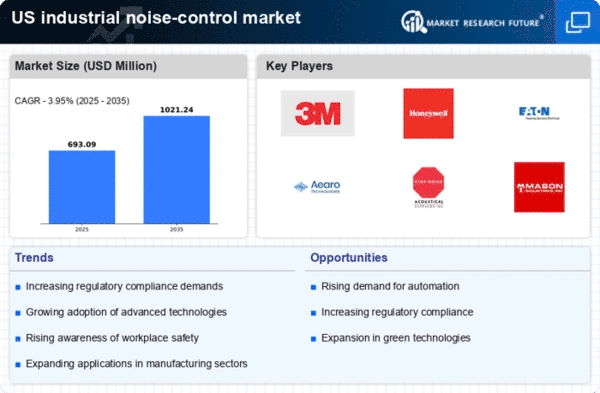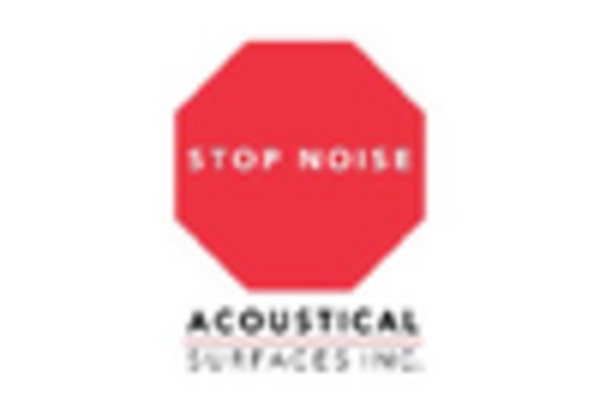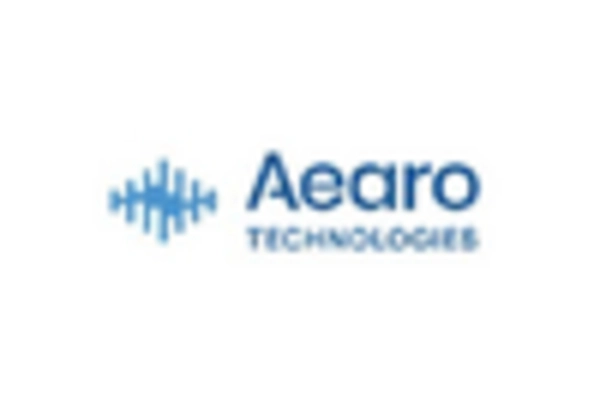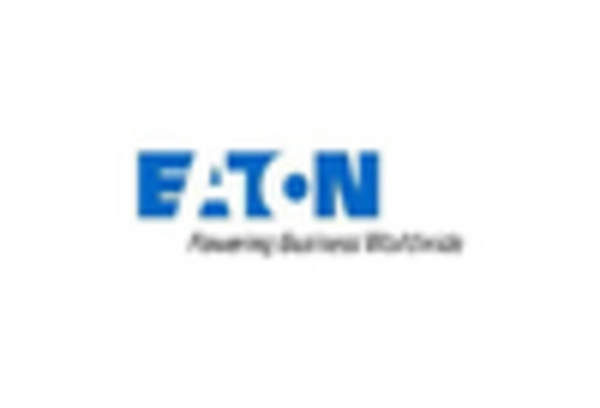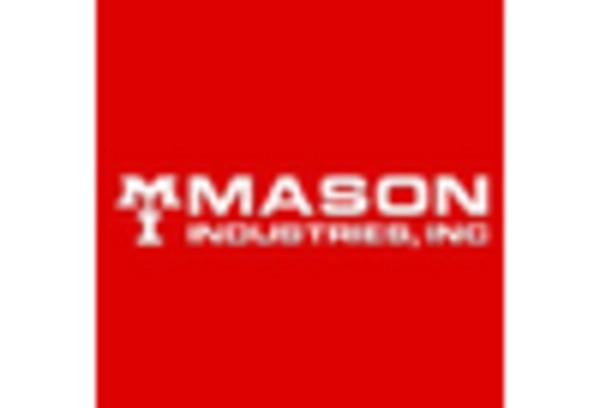Government Initiatives and Funding
Government initiatives aimed at promoting workplace safety and environmental protection are significantly influencing the industrial noise-control market. Various federal and state programs provide funding and incentives for companies to adopt noise control measures. For example, the Occupational Safety and Health Administration (OSHA) has established guidelines that encourage industries to implement noise reduction strategies. In 2025, it is estimated that government funding for noise control initiatives will exceed $500 million, further stimulating market growth. These initiatives not only enhance compliance with regulations but also foster a culture of safety within organizations, thereby driving demand in the industrial noise-control market.
Expansion of Manufacturing Activities
The industrial noise-control market is benefiting from the expansion of manufacturing activities across the United States. As the manufacturing sector grows, so does the need for effective noise control solutions to comply with occupational safety regulations. In 2025, the manufacturing sector is projected to contribute approximately $2 trillion to the US economy, necessitating the implementation of noise control measures to ensure a safe working environment. This growth is prompting manufacturers to invest in advanced noise control technologies, such as sound barriers and acoustic panels, to mitigate noise pollution. Thus, the expansion of manufacturing activities is a significant driver for the industrial noise-control market.
Increasing Awareness of Health Impacts
The industrial noise-control market is experiencing growth due to rising awareness regarding the health impacts of excessive noise exposure. Studies indicate that prolonged exposure to high noise levels can lead to various health issues, including hearing loss, stress, and cardiovascular diseases. As industries become more cognizant of these risks, there is a push towards implementing noise control measures. This trend is particularly evident in sectors such as manufacturing and construction, where noise levels can exceed 85 dB. Consequently, companies are investing in noise-reduction technologies and solutions to protect their workforce, thereby driving demand in the industrial noise-control market.
Rising Demand for Worker Safety Solutions
The industrial noise-control market is witnessing a surge in demand for worker safety solutions as organizations prioritize employee well-being. With increasing scrutiny on workplace conditions, companies are compelled to address noise-related hazards. In 2025, it is projected that the market for worker safety solutions will grow by 10%, with noise control being a critical component. This trend is particularly pronounced in industries such as construction and manufacturing, where noise levels can pose significant risks. As a result, businesses are investing in noise control technologies to create safer work environments, thereby propelling growth in the industrial noise-control market.
Technological Innovations in Noise Control
Technological innovations are playing a crucial role in shaping the industrial noise-control market. The development of advanced materials and soundproofing technologies has led to more effective noise reduction solutions. For instance, the introduction of sound-absorbing materials and vibration-damping technologies has enhanced the performance of noise control products. In 2025, the market for noise control solutions is expected to reach $1.5 billion, driven by these innovations. Companies are increasingly adopting these technologies to improve workplace acoustics and comply with noise regulations, thereby propelling growth in the industrial noise-control market.


